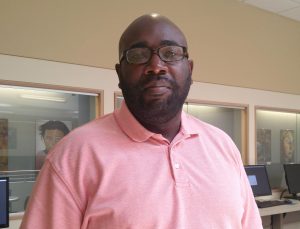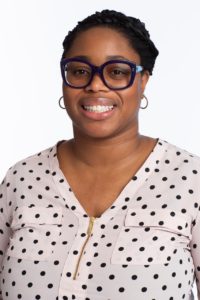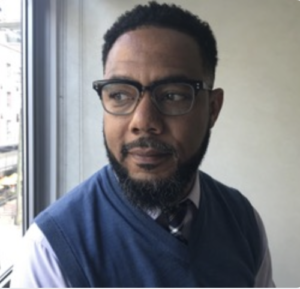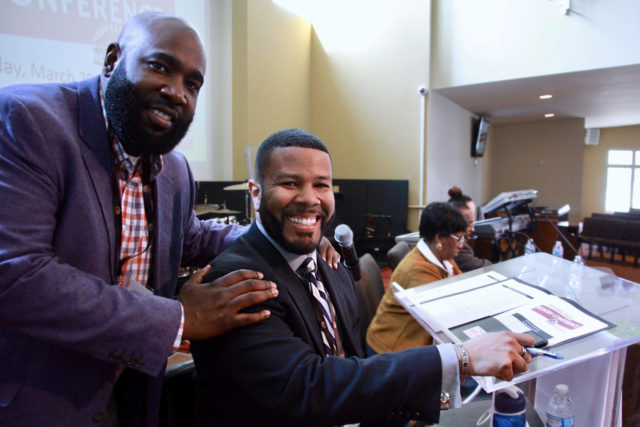Nehemiah Center for Urban Leadership Development will host community leaders and criminal justice experts who will share stories, tackle tough issues and set a course for a plan of action at its third annual “Hope, Community, Teamwork” Reentry Conference on Sept. 16 and 17. This year’s theme will center on how the pandemic has impacted criminal justice reform.
“This is our third re-entry conference. We really just wanted to start this because we wanted to dig into this issue and get the community involved and make sure that they are aware and understanding their voice and their power when we talk about re-entry,” Anthony Cooper, senior vice president of strategic partnerships and reentry services at Nehemiah, tells Madison365. “But also for people who are affected by incarceration, we wanted them to be able to have a place for conversations and for them to know that they have support out there.

“The only way we are going to be able to change systems is if we do it together … if we really allow ourselves to be in spaces with open minds with action behind it,” he adds.
Nehemiah will be bringing together those working in the criminal justice system and those impacted by the system for what the organizers are calling “real talk that leads to action.” Cooper says that it’s important to learn from those with lived experience. The Reentry Conference will be a chance to hear from leaders in the field such as Catoya Roberts, John Eason, and Carl Wesley and to engage with numerous panel discussions on the vital topics in reentry services.

“These speakers are people who have been there and are the changemakers. They are people who are really trying to make a better day for everyone,” Cooper says. “I think it’s important for people to know that there is help out there and I think it’s important to learn from those who have the lived experiences. It really personalizes it for people.
“How did that person get in that situation? How did they turn around their lives? What were some of the downfalls? What were those person’s successes? Those are the things that you don’t often hear about firsthand,” Cooper adds. “These are people with lived experience but also worked for the system as well. They provide very valuable tools for our community.”
Nehemiah Center for Urban Leadership Development, which aims to transform the face of leadership in Madison by empowering African American families and African American males, has already has been having a busy year. Its staff has been documenting the stories of incarceration during the pandemic in their own voices through the Justified Anger Podcast series titled “The COVID Corrections Crisis.”

“With the pandemic, people are really struggling. There are programs that are helping people with employment, but there are still many challenges. There are challenges with housing and homelessness,” Cooper says. “The pandemic has affected so many individuals who have been released from prison. These are things that we have to address. But it’s not just addressing it, it’s about taking action to challenge and change what this narrative looks like.”
Nehemiah staff and volunteer allies have been working with the Court Observer advocacy group to help keep the court system accountable and have been influencing better pandemic representation in court appearances. Nehemiah Reentry Coordinator Aaron Hicks recently hosted Dane County Sheriff Kalvin Barrett in a “Man-Up” group that he facilitates where men impacted by incarceration are mentored. The group convinced Sheriff Barrett to stop using the term “inmate” in the Dane County Jails and instead use “residents” or “in our care.”
“If we keep looking at people as ‘less than’ we’re setting people up for failure. There’s a process in how we communicate with each other and we must work more together to help each other and empower each other,” says Cooper, the winner of the 2019 City-County Humanitarian Award honoring Reverend Dr. Martin Luther King, Jr. “As a resident, you’re not looked down on as a ‘less-than’ person. Words can tear people down and it’s not correcting the behavior.”

These issues will be talked about at the upcoming Nehemiah Reentry Conference that has the goal to learn, engage, network, and build action plans. Who is this conference for?
“The conference is for everyone. It’s a way for people to talk about important issues from people who have gone through it and are part of making the policies and know exactly what’s going on,” Cooper says. “We’re taking the guessing out of many people’s heads. That’s what makes this conference powerful.
“A lot of times people go by what they feel and what they hear, but if you hear directly from the person, that changes the way you think and that also helps you to be able to help others and to have a better perspective and to know that change is possible for individuals that are in the system.”
For more information about the Reentry Conference or Nehemiah’s Reentry program,
go to www.nehemiah.org or contact Anthony Cooper, Sr. at (608)395-7092.




























